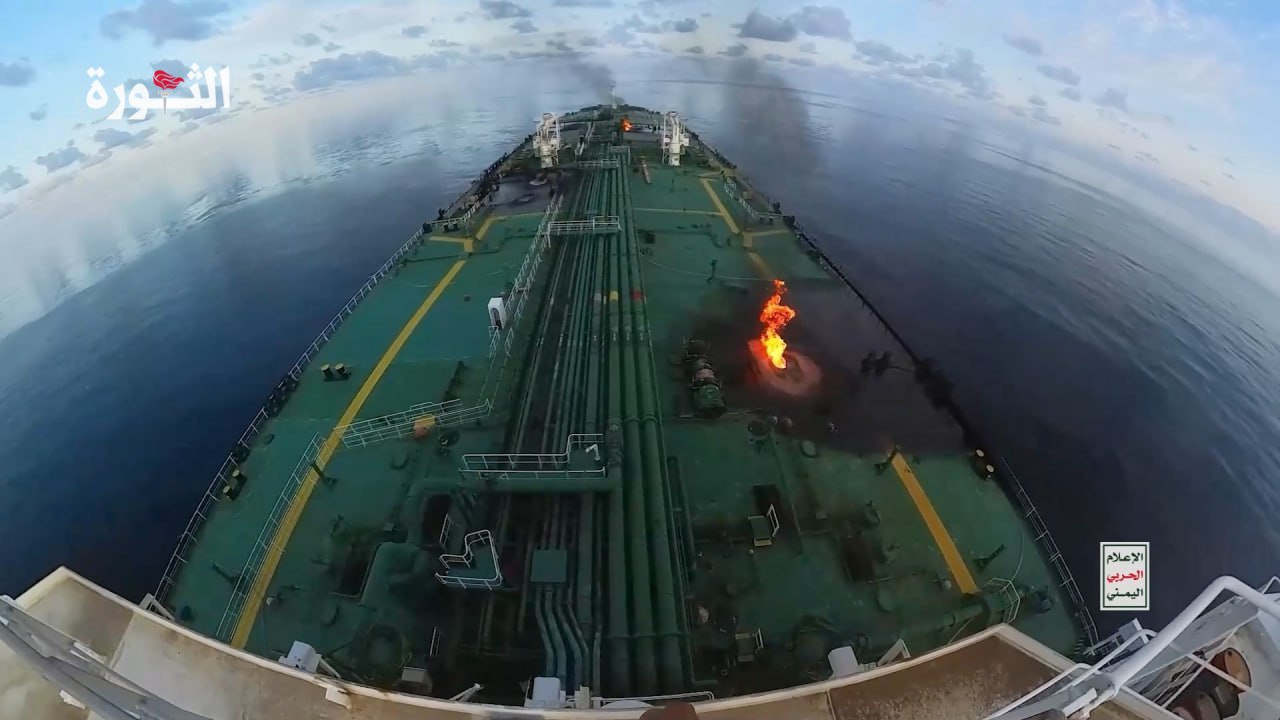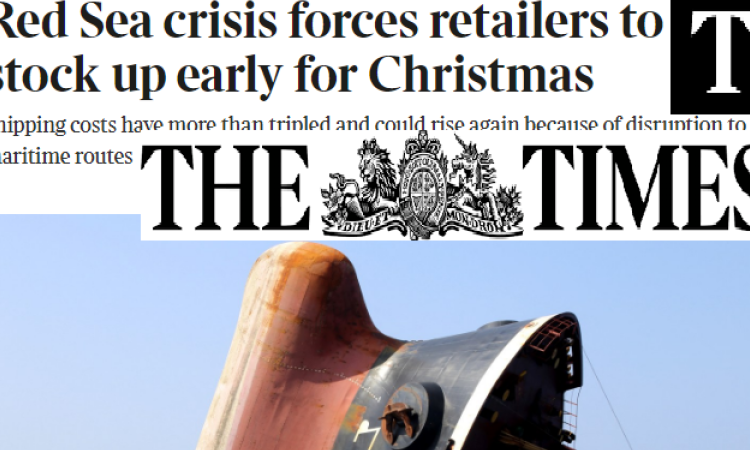The British supply chain continues to face disruptions due to Yemeni naval operations, which have blocked British vessels from passing through the Red Sea in support of Gaza and retaliation for aggressive airstrikes against Yemen, according to The Times. The newspaper confirmed that shipping costs have more than tripled and are expected to rise even further.
In a report published on Monday, The Times described the Red Sea crisis as having "forced British retailers to stock goods earlier in preparation for Christmas." This means that the shipping industry has been working throughout the typically quiet summer period to transport goods from China and Southeast Asia to the UK and Europe.
The report explained that retailers usually expect to receive Christmas goods after September, but this year they began ordering shipments from suppliers as early as July.
Shipping costs, the report noted, have risen more than threefold and may increase again due to the disruption of sea routes over the coming months. This is because vulnerable vessels have been rerouted around South Africa to avoid potential attacks.
The newspaper also highlighted that "restrictions at the Panama Canal and signs of escalation in the trade war between the U.S. and China have further driven up prices."
According to the report, the Drewry World Container Index indicates that the cost of shipping a standard 40-foot container on major trade routes is currently $4,775, compared to $1,389.50 of October of last year.
The article warned that analysts are expecting shipping prices to rise even further, with demand likely to remain high until at least February next year. They also cautioned that potential labor disputes on the East and Gulf coasts of the U.S. could lead to further supply chain disruptions and increased shipping costs.
The Times quoted Patrick Lieberhof, the director of the supply chain management consultancy firm Inverto, as saying: "The prolonged supply disruptions in the Red Sea are harming supply chains, which remain extremely fragile."
The newspaper noted that retailers are concerned that volatile shipping prices could spike again unexpectedly, according to Inverto.
Lieberhof added: "This has put pressure on retailers themselves, as they are accumulating more stock earlier than usual, which they may not have enough storage space for. Instead, retailers will need to look for short-term
storage solutions, which could be very costly."









